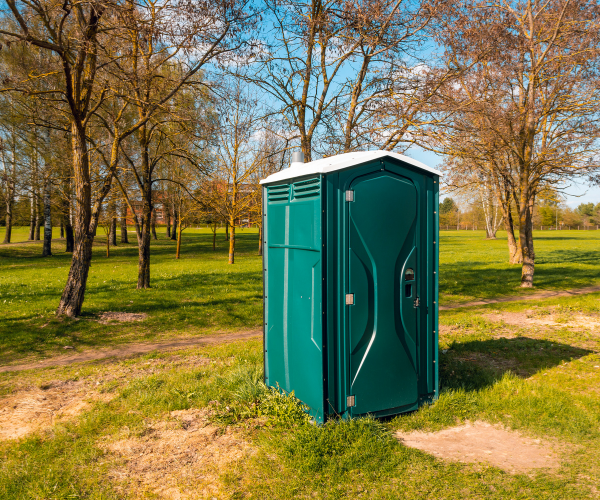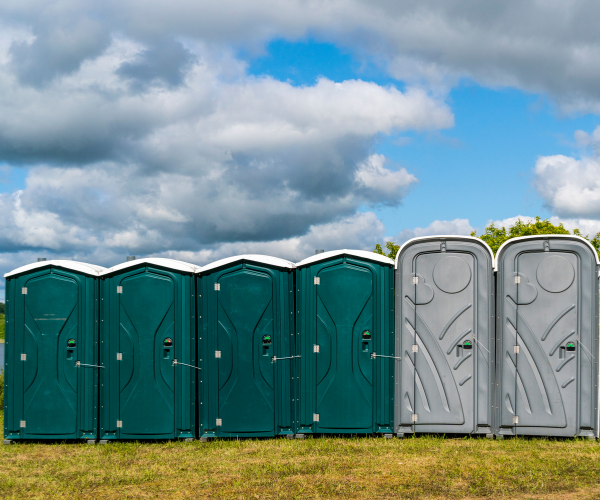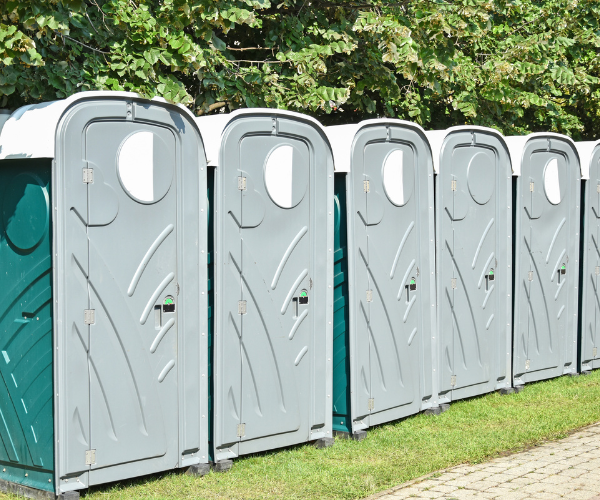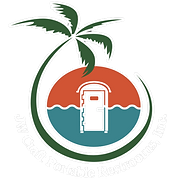Portable toilets offer several significant eco-friendly advantages that contribute positively to the environment. First and foremost, they significantly reduce water consumption, as traditional toilets use vast amounts of water per flush, while portable units require none, operating through efficient chemical processes. These specialized chemical treatments ensure waste is broken down more effectively, minimizing environmental impact and lowering maintenance requirements. Furthermore, portable toilets are designed to contain waste securely, thereby preventing contamination of the surrounding land and water sources, which is critical in protecting wildlife and ecosystem health. Another key environmental benefit is their mobility; they are easily transportable, allowing for strategic placement that minimizes transportation emissions by only targeting high-demand areas. Beyond these peace-of-mind benefits, the use of portable toilets at large events and construction sites means organizers and coordinators are less reliant on existing sewage systems, which can become overloaded and damaged by high volume demand. Thanks to their streamlined design and efficient waste management processes, they provide a practical, sustainable choice for all occasions, whether for temporary or recurring needs. Additionally, many modern portable toilet units are made from recycled materials, further reducing their carbon footprint and promoting a circular economy.

Portable Toilet Rentals in Sarasota County, Florida
Call today for a free quote (239) 402-7239
Portable Toilet
Fast, Easy, & 100% Free To Get Started
Over 20 Years of Experience
Boasting over 20 years of experience, we have forged strong community connections in Sarasota County. Our dedication to quality ensures reliability and customer satisfaction each time.
Commitment to Quality
Our service is rooted in a steadfast commitment to quality, ensuring pristine and hygienic portable restrooms ready for any event or site requirement.
Fast and Efficient Delivery
We take pride in delivering portable restrooms quickly, ensuring they are on-site and ready just when you require them most.
Portable Toilet Solutions in Sarasota County
Call for a Free Quote Today
(239) 402-7239
Reliable and locally owned, we provide top-tier portable toilet services tailored to the needs of Sarasota County and its surrounding areas. From bustling construction sites to elegant weddings, lively festivals, and memorable parties, our dependable units and exceptional service guarantee satisfaction. Trust us for all your portable sanitation needs and experience unmatched professionalism and convenience.


Our standard porta john rental units are durable and reliable for any commercial build site, housing development, public works project, or remodel job.Features include dome lighting, grated floors, and an “In-Use” locking mechanism for privacy and comfort. Regularly maintained, inspected, and cleaned by FusionSite at your location.

Developed as an alternative to full ADA-compliant restrooms, the Liberty is a spacious, wheelchair-accessible unit that can also be promoted as a family-sized restroom. Includes a patented flat-floor system for easy wheelchair access and maneuverability.Handrails, paper holder, and rotary latch are designed for simple, intuitive end-user operation.

Portable hand washing stations are essential for keeping your work site sanitary and clean. Features hands-free foot pumps, liquid soap, and paper towels.Perfect for job sites without water hookups, these units can handle hundreds of washes between services.
We Proudly Serve
Standard Portable Toilets
Standard portable toilets for reliable and sanitary solutions, perfectly suited for events and construction sites by JW Craft in Florida.
High Rise Portable Toilets
Our high-rise portable toilets are designed for easy access and use in construction or multi-story sites within Sarasota County.
Restroom Trailers
JW Craft offers restroom trailers in Sarasota County providing luxurious restroom facilities for events of all sizes.
Roll off Dumpsters
Roll off dumpsters by JW Craft ensure efficient waste management on any site in Sarasota County.
Septic Tank Cleaning
Our septic tank cleaning service at JW Craft in Florida ensures your septic system runs efficiently and smoothly.
Grease Trap Cleaning
JW Craft in Sarasota County provides expert grease trap cleaning to maintain high standards of hygiene in your facilities.
Fencing & Barricades
Fencing & Barricades services by JW Craft in Florida offer dependable perimeter solutions for events and construction projects.
Residential Storage
Residential Storage services in Sarasota County by JW Craft cater to those in need of secure and accessible storage solutions.
Sarasota County Portable Toilet and More
Getting a quote and arranging delivery of Portable Toilets has never been easier. Our user-friendly platform streamlines the process, allowing you to request quotes seamlessly through forms located at the top and bottom of our website pages. Within these forms, simply input your essential contact information—including your first name, last name, phone number, and email—to quickly receive a tailored quote. Moreover, with convenient 'Get A Quote' buttons spread throughout, we ensure you can access this information from any page easily. Our efficient quote system ensures transparency in pricing while our prompt customer service team is always ready to assist with any inquiries, making sure you have all the details needed for your decision. Once you've decided, our fast and reliable delivery process takes over, ensuring that your Portable Toilets arrive precisely when and where needed, be it for construction, events, or special functions across Sarasota County. Trust in our proven rental services to provide convenience, quality, and professionalism when it matters most.

Sarasota County, home to iconic landmarks like Siesta Key Beach and vibrant events like the Sarasota Film Festival, is an ideal location to showcase our Portable Toilet services. We stand out by offering clean, reliable, and convenient solutions that seamlessly integrate into the local atmosphere. Whether nestled between the pristine sands of Siesta Key or amidst the lively community gatherings at events like the annual Film Festival, our services enhance any occasion with superior sanitation. Our Portable Toilets are not only about functionality but also about contributing to the charm and functionality Sarasota County thrives on. By supporting local events, from festivals to weddings, our units ensure every guest enjoys the surroundings comfortably. This blend of local appeal and excellent service positions us as the top choice in the area, dedicated to improving outdoor experiences with every rental. Embrace the comfort and reliability of our Portable Toilets, designed to provide top-notch sanitation while fitting effortlessly into Sarasota's embrace of nature and community spirit. We are committed to enhancing the guest experience through clean and convenient services that meet the unique characteristics of Sarasota County.
Selecting a portable toilet service in Sarasota County often feels overwhelming, but we promise unparalleled quality and dedication. Our team has earned its reputation through trust, reliability, and exceptional service standards. We engage closely with the community, grasping its distinct needs while offering customized solutions for any occasion, from small weddings to grand festivals. Our modern units receive meticulous maintenance, guaranteeing a spotless experience every time. We pledge more than service to Sarasota; we aim to enhance each event and project with convenient, accessible sanitation. Rely on us for excellence delivered directly to your site.
Our company is dedicated to providing fast, reliable Portable Toilet services that cater to the urgency and effectiveness demanded by our clients. We understand the importance of having sanitary facilities ready when required, which is why our streamlined processes ensure timely delivery and setup in Sarasota County. Our team is highly trained to handle all logistics swiftly, ensuring your event or construction site is functional as soon as possible. With our expansive fleet and experienced staff, we offer hassle-free solutions that save you both time and effort. By choosing us, you can trust that your Portable Toilets will arrive as scheduled, with service standards that leave nothing to chance. Our robust service plan and customer-first approach make us the preferred provider for efficient portable toilet rental solutions.
Learn More About Our Portable Toilets in Sarasota County
Renting a portable toilet in Sarasota County is straightforward, with our efficient, user-friendly system. Start by visiting our website where you'll find all necessary forms located at the top and bottom of each page. Simply fill out these forms with your first name, last name, phone number, and email for a fast response. Alternatively, click any 'Get A Quote' button, strategically placed throughout our site, to immediately request pricing details and availability tailored to your needs. Each option connects you with our responsive customer service team, eager to assist and provide all relevant information to finalize your rental. By maintaining a seamless access process, we ensure that arranging your portable restroom services is as easy as possible, prioritizing both efficiency and customer satisfaction. Furthermore, we offer additional resources to guide you through available options, helping you select the unit best fitted for your site, whether it be an intimate gathering or a large-scale event. Count on us to streamline your rental experience, making it quick and hassle-free from inquiry to delivery.
Understanding delivery timeframes is crucial for event planning and construction management; therefore, we aim to provide both clarity and courtesy concerning our Portable Toilet order delivery times. Typically, our delivery process is efficient and reliable, ensuring that units are in place well before they are expected to be used. For standard orders, we recommend placing requests at least 48 to 72 hours in advance to guarantee availability, though we often accommodate last-minute needs thanks to our flexible and resourceful staff. For large events or specialized equipment, contacting us as early as possible will ensure a broader selection of services and scheduling time slots. Once an order is confirmed, you can expect our logistic team to coordinate directly to confirm delivery times and locations, ensuring seamless setup without disruptions to your schedule. Rest assured, our experienced teams are accustomed to navigating tight deadlines and unforeseen changes, always prioritizing promptness and professionalism. However, during peak seasons or larger events, we advise planning ahead to avoid potential delays due to high traffic and demand.
Yes, we proudly service a diverse range of events and construction needs with our suite of portable sanitation solutions. Our offerings cater to all types of functions, from lively festivals and large sporting events to elegant weddings and sophisticated corporate gatherings. With an extensive inventory including luxury restroom trailers, clean and efficient porta potties, roll-off dumpsters, fencing, barricades, holding tanks, ADA-compliant units, portable sinks, and hand sanitizing stations, we have the capacity to support any event's unique requirements. Our ability to provide comprehensive sanitation setups ensures that each function runs smoothly, delivering comfort and convenience to hosts and guests alike. Our team is skilled in crafting tailored solutions that align with the specific demands of each project, thereby enhancing the overall guest experience while maintaining top-notch hygiene standards. Whether serving smaller family reunions or expansive corporate meetings, our commitment to excellence underscores every aspect of service delivery, from the initial inquiry to the final teardown. Let us handle your sanitation logistics, leaving you free to focus wholly on the success of your event.

